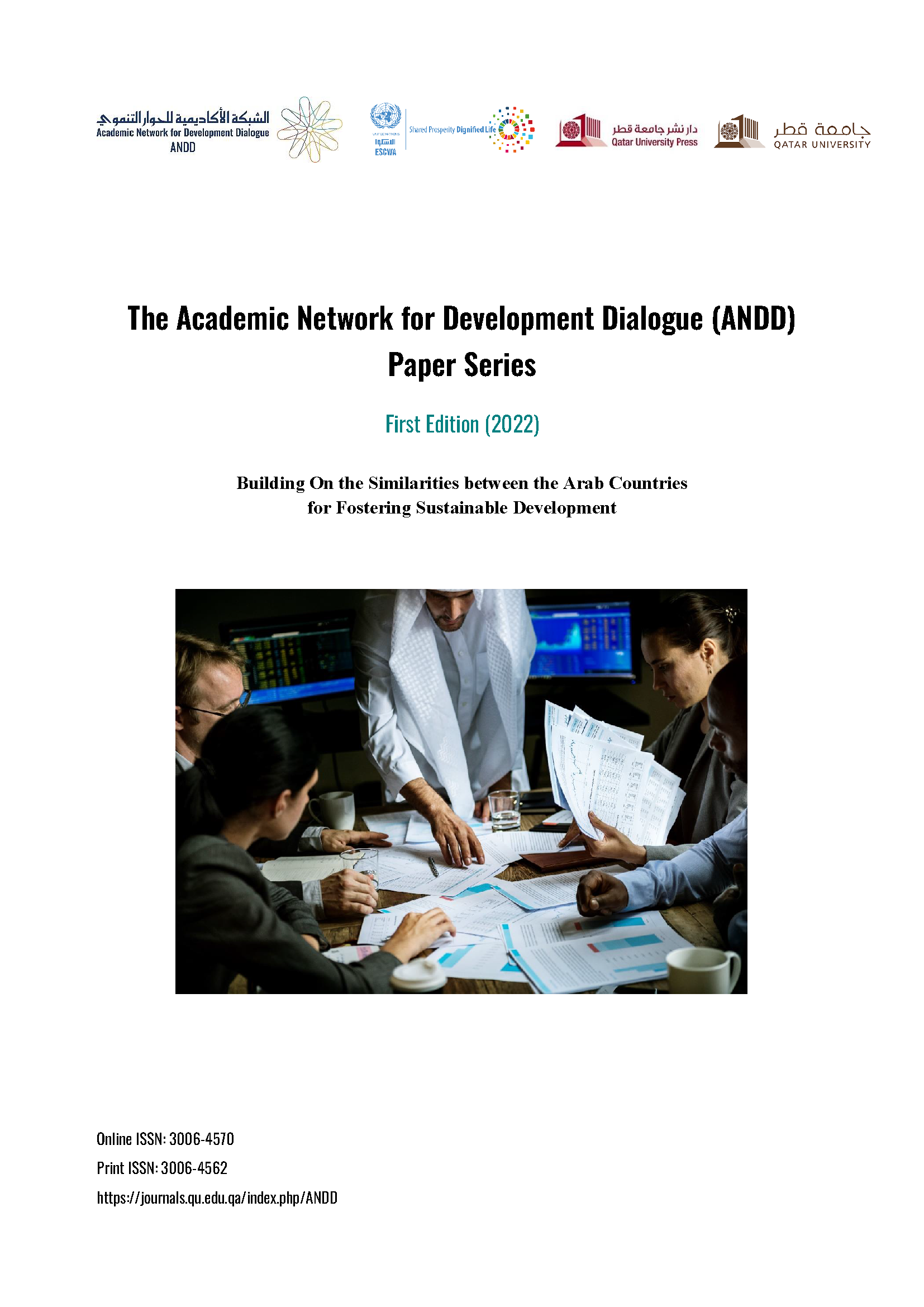Digital Knowledge Management in the Arab Region (Challenges and Solutions)
Abstract
The Arab world faced many development challenges (at the educational, economic, and educational levels...), especially after the outbreak of the Corona pandemic, which imposed the need for digital transformation based on managing digital knowledge and achieving sustainable development.
Nowadays, the concept of "knowledge economy" concept has become a necessity; given that global competitiveness is tautly related to the government’s ability to support knowledge generation and application to foster economic growth.
Considering the disparity between the Arab countries in terms of technological progress, and the use of modern technologies, besides the absence of a joint Arab digital cooperative agenda, in addition to the growing digital divide that occurs for several reasons (political, financial, social, technical, scientific...); what are the chances of achieving the sustainable development goals 2030?
Through his study, we attempted to shed light on the need to invest in digital transformation and digital knowledge management to achieve sustainable development. We study the current situation in the Arab region, and the challenges it faces, then we highlight the expected future scenarios if the Arab States continue to proceed in the same. Ultimately we present some possible solutions that could contribute create regional cooperation between the Arab countries, and bridging, or at least reducing the digital divide, by establishing an Arab agenda for digital development by the year 2040.
##plugins.themes.bootstrap3.article.details##
Digital knowledgeTechnological developmentSustainable developmentDigital transformation in Arab countriesDigital divide
• Stone, M., & Vogelstein, R. B. (2019). "Investing in Girls’ STEM Education in Developing Countries, Council on Foreign Relations," Retrieved from https://www.cfr.org/report/investing-girls-stem-education-developing-countries
• أحمد، إسماعيل عثمان حسن. (2020). "تحديات التعليم الرقمي في الوطن العربي (رؤية تأصيلية)"، المجلة العربية للتربية النوعية، 4(12)، 91-108. http://search.shamaa.org/PDF/Articles/EGAjqe/AjqeVol4No12Y2020/ajqe_2020-v4-n12_091-108.pdf
• بابكر، سامر. (2021). "اقتصاد المعرفة"، صندوق النقد الدولي، أبوظبي، سلسلة كتيبات معرفية، ع13، متاح على الرابط: https://www.amf.org.ae/sites/default/files/publications/2021-12/knowledge-economy.pdf، 16/10/2022.
• وزان، مي. (2008). "الاقتصاد المعرفي والحكم الجيد في قطر"، مجلة الشرق الأوسط وشمال أفريقيا، 2(5)، ص5، https://documents1.worldbank.org/curated/en/817111468052480733/pdf، 15/10/2022.
• اتحاد المصارف العربية. (2021). "التحوُّل الرقمي في المنطقة العربية تعتمده كافة المؤسسات الساعية إلى التطوير وتحسين خدماتها وتسهيل وصولها للمستفيدين"، https://uabonline.org، 12/10/2022.
• "إطار المؤشرات العالمية لأهداف وغايات خطة التنمية المستدامة لعام 2030"، https://unstats.un.org، 12/10/2022.
• الأمم المتحدة. "أجندة الأمم المتحدة للتنمية المستدامة 2030"، https://www.unescwa.org/ar/focus/2030-agenda، 10/10/2022.
• بلفلاح، يونس. "إشكالات اقتصاد المعرفة في الوطن العربي"، اتحاد المصارف العربية، https://uabonline.org، 9/9/2022.
• البنك الدولي. (2022). "التقرير السنوي لعام 2022 بعنوان: مساعدة البلدان على التكيف مع عالم متغيِّر"، https://www.albankaldawli.org، 11/11/2022.
• تقرير الاقتصاد الرقمي لعام (2019). "مؤتمر الأمم المتحدة للتجارة والتنمية (الأونكتاد)"، https: www.unctad.org، 11/11/2022.
• تقرير التنمية الرقمية العربية (2019). "نحو التمكين وضمان شمول الجميع"، موقع الإسكوا، www.unescwa.org، 11/10/2022.
• تقرير المعرفة العربي. (2014). "الشباب وتوطين المعرفة"، مؤسسة محمد بن راشد آل مكتوم وبرنامج الأمم المتحدة الإنمائي، http://www.crci.sci.eg/wp-content/uploads/2015/arab_knowledge/2014U/Arabic.pdf، 10/10/2022.
• خاطر، إسراء حسن. (2019). "إدارة المعرفة"، https://mawdoo3.com، 29/10/2022.
• الخوري، علي محمد. (2020). "الاقتصاد العالمي الجديد: ما بين الاقتصاد المعرفي ومفاهيمه الحديثة والاقتصاد الرقمي والابتكارات التكنولوجية المتسارعة"، البنك المركزي المصري، https://masrafeyoun.ebi.gov.eg، 12/10/2022.
• السباعي، رانيا. (2017). "عوامل تراجع الأداء العربي على مؤشرات اقتصاد المعرفة"، المستقبل للأبحاث والدراسات المتقدمة، https://futureuae.com/ar، 25/10/2022.
• الشربيني، أيمن. (2021). "نحو سياسات وأجندة وطنية لصياغة المستقبل الرقمي للعالم العربي"، المركز العربي لأبحاث الفضاء الإلكتروني، https://accronline.com/print_article.aspx?id=30979، 28/10/2022.
• المنصة الوطنية الموحدة، "رؤية المملكة 2030"، https://www.my.gov.sa، 13/10/2022.
• منظمة اليونسكو. (2013). "تجديد رؤية مجتمعات المعرفة للسلام والتنمية المستدامة"، https://unesdoc.unesco.org، 27/10/2022.
• منظمة اليونسكو. (2019). "المعرفة في المنطقة العربية: اللغة العربية بوابة للمعرفة"، https://unesdoc.unesco.org/ark:/48223/pf0000372586_ara، 27/10/2022.
• مؤسسة محمد بن راشد آل المكتوم للمعرفة. (2020). "إدارة المعرفة في تحقيق أهداف التنمية المستدامة"، https://www.mbrf.ae، 20/9/2022.
• المؤشر العالمي للبنية التحتية للاتصالات، "رؤية الامارات 2021"، https://vision2021.ae، 20/9/2022.
• وزارة الاتصالات وتكنولوجيا المعلومات القطرية، موقع وادي تسمو الرقمي، https://tdv.motc.gov.qa/ar/tasmu-digital-valley-services، 13/11/2022.


